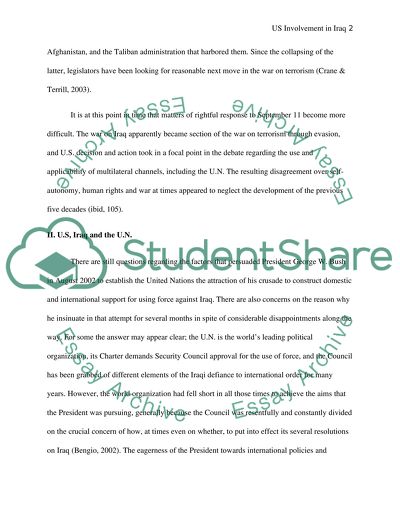Cite this document
(“Contemporary Middle East History (US INVOLVEMENT IN IRAQ) Essay”, n.d.)
Contemporary Middle East History (US INVOLVEMENT IN IRAQ) Essay. Retrieved from https://studentshare.org/miscellaneous/1551263-contemporary-middle-east-history-us-involvement-in-iraq
Contemporary Middle East History (US INVOLVEMENT IN IRAQ) Essay. Retrieved from https://studentshare.org/miscellaneous/1551263-contemporary-middle-east-history-us-involvement-in-iraq
(Contemporary Middle East History (US INVOLVEMENT IN IRAQ) Essay)
Contemporary Middle East History (US INVOLVEMENT IN IRAQ) Essay. https://studentshare.org/miscellaneous/1551263-contemporary-middle-east-history-us-involvement-in-iraq.
Contemporary Middle East History (US INVOLVEMENT IN IRAQ) Essay. https://studentshare.org/miscellaneous/1551263-contemporary-middle-east-history-us-involvement-in-iraq.
“Contemporary Middle East History (US INVOLVEMENT IN IRAQ) Essay”, n.d. https://studentshare.org/miscellaneous/1551263-contemporary-middle-east-history-us-involvement-in-iraq.


